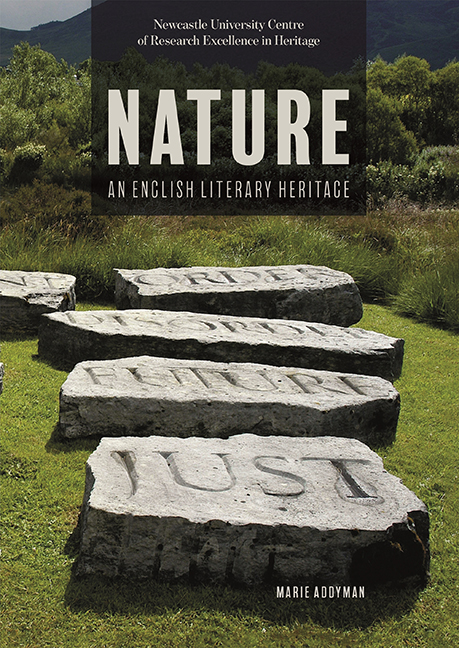Book contents
- Frontmatter
- Dedication
- Contents
- Acknowledgements
- Preface
- Introduction: Infected Minds
- I Nature as (A)morality and Mortality in Early Modern England
- II Living the Wild Life in the Nineteenth Century
- III Nature and History: Towards the Anthropocene
- Afterword: Apokalypsis
- Bibliography
- Index
- Previous Titles
5 - The Natural Family (2): Frankenstein
Published online by Cambridge University Press: 11 June 2021
- Frontmatter
- Dedication
- Contents
- Acknowledgements
- Preface
- Introduction: Infected Minds
- I Nature as (A)morality and Mortality in Early Modern England
- II Living the Wild Life in the Nineteenth Century
- III Nature and History: Towards the Anthropocene
- Afterword: Apokalypsis
- Bibliography
- Index
- Previous Titles
Summary
King Lear demonstrates graphically and tragically the destruction that ensues when the natural kindness in humans which is love is missing. Replaced by possessiveness on the one side, and violent hostility or self-sacrifice on the other, antagonistic pleiotropy rages and creates the neartotal obliteration of mankind, held at bay only by those victimised but persistent voices which learn the lesson of solidarity in the face of the elements. The progress of a destruction characterised as monstrous behaviour in evilly recalcitrant children originates with a paternal-patriarchal desire to control human and non-human resources at will. This catastrophic error is taken up two centuries later by a young woman, Mary Shelley (1797–1851), who in 1818 created the myth of the deluded father attempting to use technology to create his own designer child and instead producing a creature who is perceived and behaves as monstrous. The resulting novel, Frankenstein, preoccupied with issues of generation, fertility, and natural bonds violated, would spawn reactions, imitations and variations for the following two centuries into our own present time. The primary question is what does the novel force enticingly if horrifically onto any cultural acceptance of what it is for a human being to behave naturally? Following from this, what relationship to non-human nature does such behaviour reveal as possible?
Obscuring or ignoring those questions, however, is not uncommon. The CBBC series Horrible Histories regularly includes a sketch, ‘The Movie Pitch’, in which various people from history attempt to sell the true story of their lives and works to a cynical trio of American producers who always prefer the saleable legend, mockingly ignore the tedious account offered to them, and inevitably send the applicant away disgusted. In one sketch the novelist Mary Shelley attempts to promote Frankenstein, which the know-all trio first confuse with a vampire story, then assume that Frankenstein is ‘the monster’, and finally tell the author that there are ‘zillions’ of film versions anyway. Well, maybe not zillions, but between 1910 and 2019, there have accumulated more than seventy films in different languages, plus the odd TV mini-series, with direct or indirect references to Frankenstein. These include a James Bond film, comedies, westerns, sci-fi, a woman as Lady Frankenstein, a self-advertised black Frankenstein, as well as gore fests which link Frankenstein's creatures to other monsters (ghouls, zombies, werewolves, vampires).
- Type
- Chapter
- Information
- Nature: An English Literary Heritage , pp. 135 - 156Publisher: Boydell & BrewerPrint publication year: 2021



